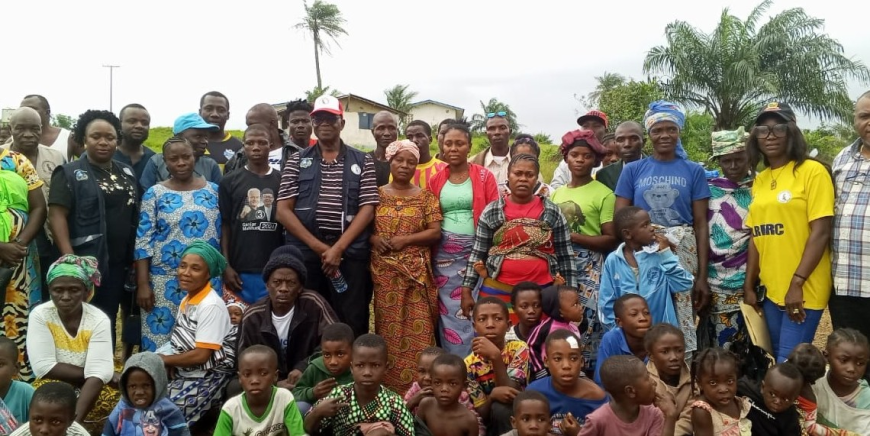Former Ivorian Refugees Get Legal Status in Liberia

Monrovia, Liberia: The Government of Liberia has begun issuing official residence permits to former Ivorian refugees marking a new phase in the country’s efforts to support local integration and shared prosperity.
Led by the Liberia Refugee Repatriation and Resettlement Commission (LRRRC), the initiative is bringing long-awaited stability to communities in Grand Gedeh and Maryland counties, where hundreds of refugees have lived for more than a decade.
The program follows the signing of Executive Order No. 144 by President Joseph Boakai in February, which streamlines access to legal documentation, healthcare, housing, and other basic services for former refugees. With the departure of the United Nations High Commissioner for Refugees (UNHCR) from Liberia, the Boakai administration is taking full national ownership of refugee-related programs.
“This is about dignity, inclusion, and empowerment,” said LRRRC Officer-in-Charge Jackson Paye, during a recent five-day visit to the southeast. “These individuals have been part of our communities for years. Now it’s time to make their presence official and productive.”
In partnership with the Liberia Immigration Service and the National Identification Registry, residence permits are now being distributed in Zwedru and surrounding areas. Many former refugees expressed gratitude for finally having a recognized legal status in the country they now call home.
Beyond legal identity, the government is investing in sustainable livelihoods, with agriculture taking center stage. The LRRRC will continue farming initiatives previously supported by UNHCR, helping residents grow food, generate income, and build self-reliance.
“We believe in empowering these communities to thrive,” Paye said. “Agriculture is key to making that happen.”
During town hall meetings in both Zwedru and Little Welbo, Paye encouraged former refugees to focus on rebuilding their lives peacefully. He also urged them to reject any attempts to exploit Liberia’s hospitality by engaging in political unrest across the border.
The government’s approach reflects both compassion and accountability sending a message that Liberia stands ready to protect, but also expects those under its care to live responsibly.
Local leaders welcomed the LRRRC’s leadership and pledged continued cooperation. As a signatory to international refugee conventions, Liberia remains committed to protecting the rights of displaced people while fostering peaceful coexistence.
For many former refugees, this initiative represents more than paperwork it’s a pathway to belonging, contribution, and a hopeful future.
What's Your Reaction?








































































